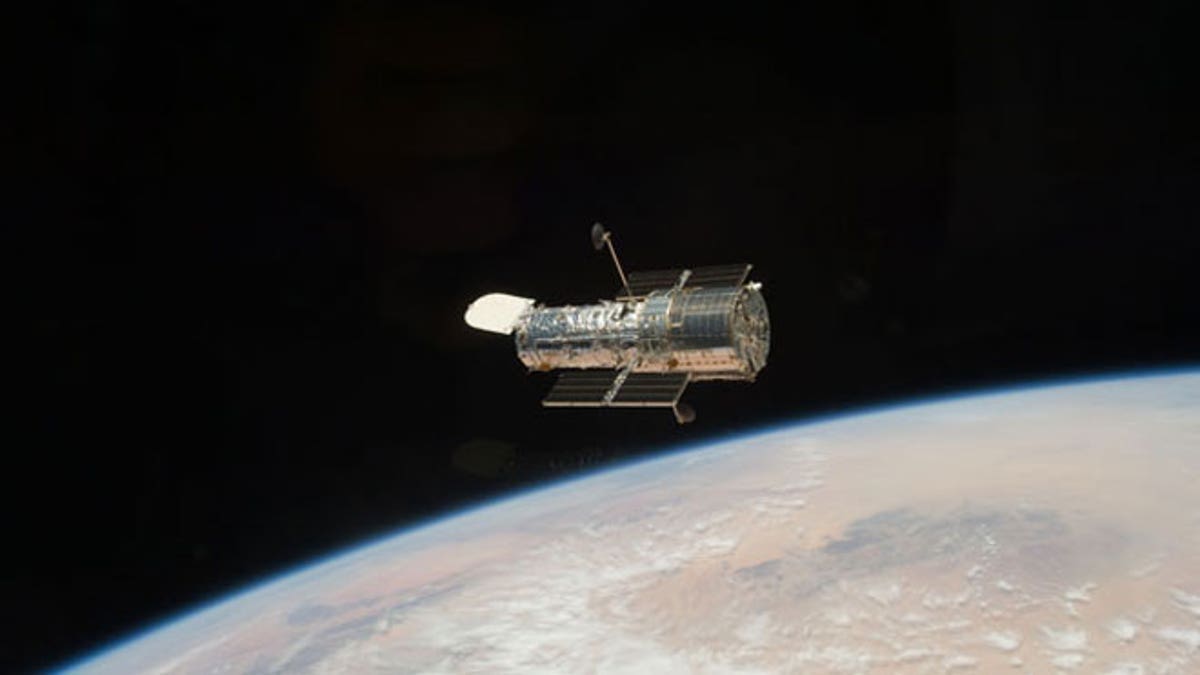
The Hubble Space Telescope orbits high above the Earth, after it was released at the close of the STS-125 servicing mission. (NASA)
The United States' spy satellite agency is giving NASA two spare space telescopes free of charge, each potentially more powerful than the Hubble Space Telescope, NASA officials announced June 4.
The two spy satellite telescopes were originally built to fly space-based surveillance missions for the National Reconnaissance Office (NRO), but will be repurposed by NASA for astronomical research instead. Their donation to NASA was revealed in a surprise announcement.
Both NRO space telescopes have a main mirror nearly 8 feet wide, rivaling the Hubble Space Telescope, and also carry a secondary mirror to enhance image sharpness, according to press reports. NASA's Hubble telescope is a space icon that has been beaming stunning photos to Earth for 22 years.
NASA and NRO officials did not elaborate on the original design or mission for the reconnaissance telescopes, though officials told the Washington Post that the earliest either of the instruments could be recycled into a new space telescope and launched into orbit would be 2020. Finding the funding necessary to refit and launch the telescopes is a major hurdle, officials said.
NASA hopes to use one of the new space telescopes to hunt for mysterious dark energy, an invisible force that scientists think is responsible for the accelerating expansion of the universe.
During a media teleconference today, NASA officials said the two telescopes have an appearance similar to the Hubble telescope: They are cylindrical in shape and covered in shiny reflective insulation. The two telescopes do not currently have names, they added.
The Hubble space telescope, which launched in 1990, is the size of a school bus and has become an astronomical icon. But Hubble is also aging. Since its launch, Hubble has been repaired or upgraded five separate times, most recently in 2009 when NASA astronauts paid the last-ever service call on the venerable instrument.
Eventually, Hubble will be decommissioned and then intentionally destroyed by plunging into Earth's atmosphere over the Pacific Ocean.
Currently, NASA has no plans to replace Hubble, which is primarily an optical observatory, with a similar instrument. The space agency's next big orbital observatory is the James Webb Space Telescope, an infrared-only telescope designed to peer deep into the universe's 13.7 billion-year history.








































